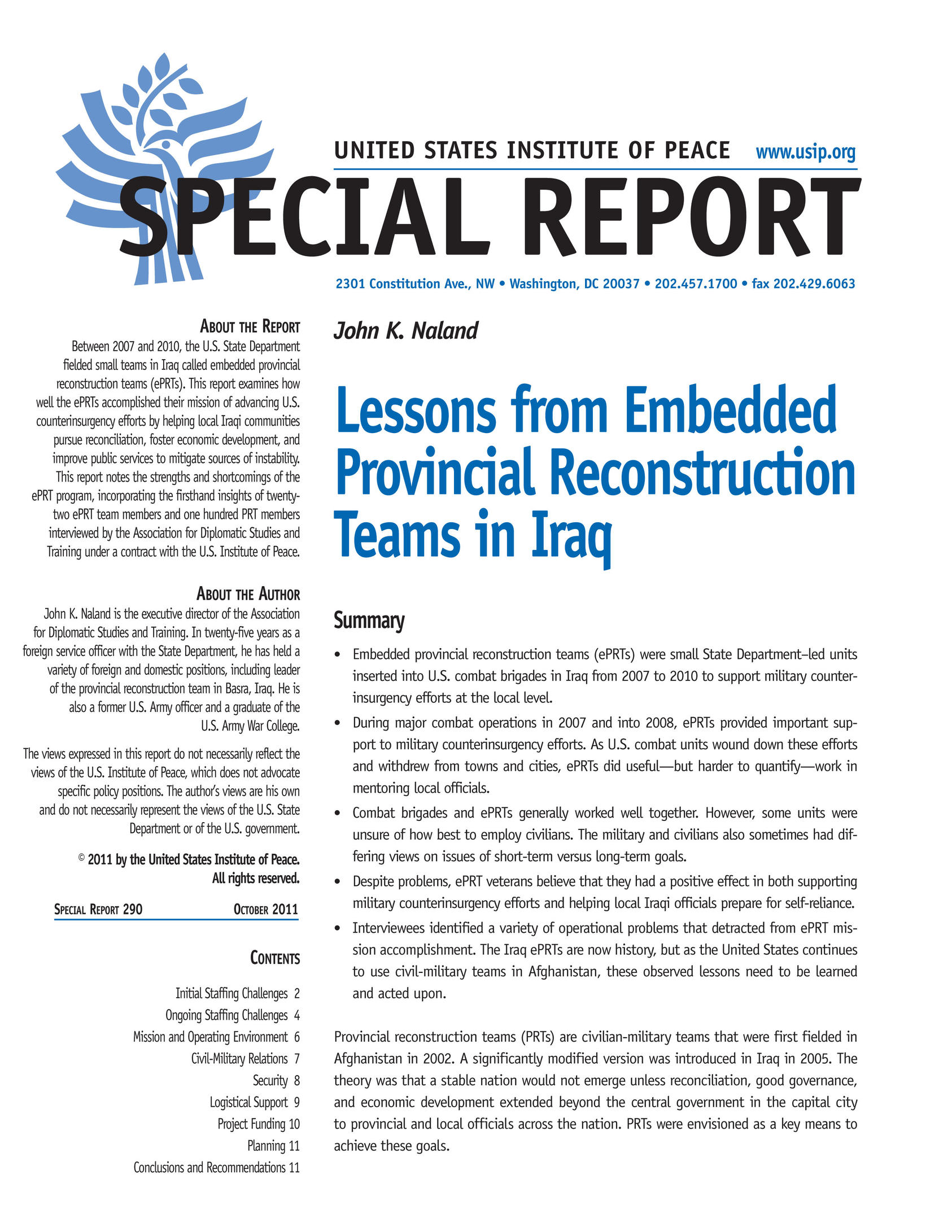Lessons from Embedded Provincial Reconstruction Teams in Iraq
Now that the U.S. program embedding civilian units with combat brigades in Iraqi provinces has ended, civilian team members weigh in on how to do it better in Afghanistan and elsewhere. They urged adequate funding and the ability to disburse it quickly, concrete goals and objectives, and an integrated chain of command.

Summary
- Embedded provincial reconstruction teams (ePRTs) were small State Department–led units inserted into U.S. combat brigades in Iraq from 2007 to 2010 to support military counterinsurgency efforts at the local level.
- During major combat operations in 2007 and into 2008, ePRTs provided important support to military counterinsurgency efforts. As U.S. combat units wound down these efforts and withdrew from towns and cities, ePRTs did useful—but harder to quantify—work in mentoring local officials.
- Combat brigades and ePRTs generally worked well together. However, some units were unsure of how best to employ civilians. The military and civilians also sometimes had differing views on issues of short-term versus long-term goals.
- Despite problems, ePRT veterans believe that they had a positive effect in both supporting military counterinsurgency efforts and helping local Iraqi officials prepare for self-reliance.
- Interviewees identified a variety of operational problems that detracted from ePRT mission accomplishment. The Iraq ePRTs are now history, but as the United States continues to use civil-military teams in Afghanistan, these observed lessons need to be learned and acted upon.
About the Report
Between 2007 and 2010, the U.S. State Department fielded small teams in Iraq called embedded provincial reconstruction teams (ePRTs). This report examines how well the ePRTs accomplished their mission of advancing U.S. counterinsurgency efforts by helping local Iraqi communities pursue reconciliation, foster economic development, and improve public services to mitigate sources of instability. This report notes the strengths and shortcomings of the ePRT program, incorporating the firsthand insights of 22 ePRT team members and one hundred PRT members interviewed by the Association for Diplomatic Studies and Training under a contract with the U.S. Institute of Peace.
About the Author
John K. Naland is the executive director of the Association for Diplomatic Studies and Training. In twenty-five years as a foreign service officer with the State Department, he has held a variety of foreign and domestic positions, including leader of the provincial reconstruction team in Basra, Iraq. He is also a former U.S. Army officer and a graduate of the U.S. Army War College.
The views expressed in this report do not necessarily reflect the views of the U.S. Institute of Peace, which does not advocate specific policy positions. The author’s views are his own and do not necessarily represent the views of the U.S. State Department or of the U.S. government.



